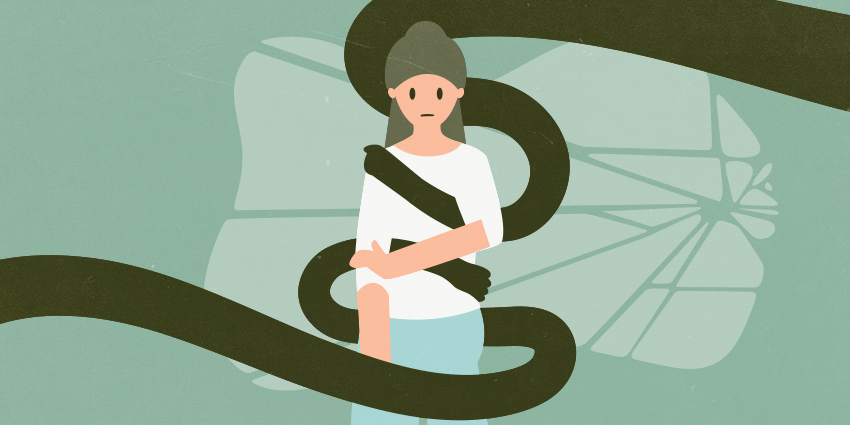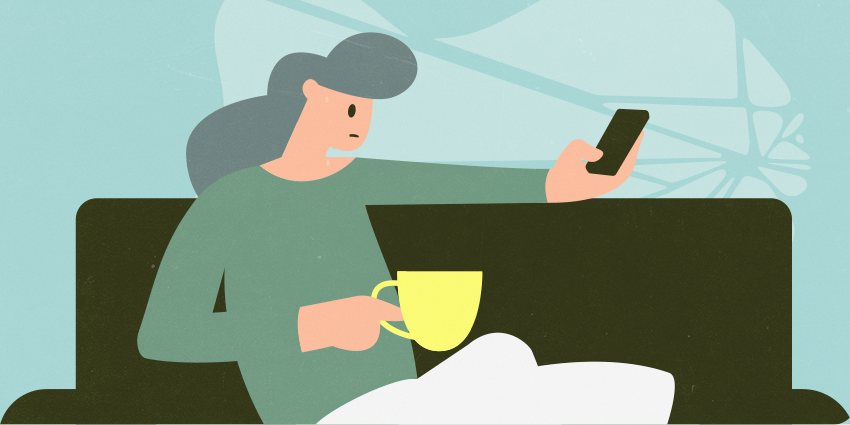To find services or supports you are comfortable with, please visit the helplines and support services page – use a friend’s phone if you think yours is being monitored.
Family and domestic violence can happen to anyone, regardless of gender, and it is never acceptable. If you’re a man who is experiencing family and domestic violence, please know that you’re not alone. It’s estimated that 1 in 14 men in Australia experienced family and domestic violence in 2021-22.
Men who are experiencing family and domestic violence, often hesitate to report it or seek support. It’s important to remember that everyone deserves to feel safe and it's okay to speak up and ask for help.
No one person’s experience with family and domestic violence is the same, and it doesn’t have to be physical to be abuse. Understanding what family and domestic violence is, and knowing what support services are available, is crucial.
What does family and domestic violence look like for men?
Family and domestic violence happens to people from all walks of life, and it can look different for each person take many forms:
- Emotional and psychological abuse: putting you down, yelling or screaming, constantly criticising your actions, ignoring you, showing extreme jealousy, gaslighting, or public humiliation. They might also threaten to hurt themselves, as a way to force you to do what they want, or to force you to stay in the relationship.
- Limited decision making: having important financial or lifestyle-related decisions made for you, where you don’t have a say.
- Social isolation: making you feel bad about seeing friends and family or even restricting you from them altogether.
- Dominating behaviour: threatening or frightening behaviour towards you.
- Physical assault: violent behaviour towards you.
Find out more about family and domestic violence.
Why men may stay in a relationship, when their partner is abusive
Family and domestic violence involves control and isolation, and it can involve fear. When a partner is abusive, part of that abuse can be making you feel like you have nowhere else to go, or that it isn’t safe for you to walk away.
Some other reasons men might be hesitant to leave a relationship where their partner is being abusive, can include:
- Being worried about the impact to their children.
- Some people might feel like they’re going to be judged about their circumstances.
- Religious or cultural beliefs making it hard to leave.
- Having a fear that you won’t be believed or taken seriously if you report it, or that you’ll be told to “toughen up” by mates who might not realise the severity of the situation.
What can men experiencing family and domestic violence in Western Australia do?
Document and report the abuse
Creating a log of the abuse helps to provide evidence of what you’ve experienced and the frequency. This can include times they’ve stopped you from visiting friends or family, name calling, acts of violence against you or your kids.
If you, or someone you know, is in immediate danger, call the police now on 000.
To report an incident of family and domestic violence call police on 131 444. See the WA Police website for more information on how to report family violence to the Police.
Consider applying for a Family Violence Restraining Order (FVRO)
A Family Violence Restraining Order (FVRO) is a court order to keep you and your family safe in a domestic violence situation. Anyone over the age of 16 years old can apply for an FVRO.
A FVRO can be tailored to your situation and prevent your partner or ex-partner from:
- Being near you, your home, place of work, or children.
- Contacting you.
- Making threats.
- Sharing intimate images of you.
- Tracking and following you.
Breaking a FVRO or Police Order is illegal and is called a ‘breach’. Report each breach to the police, including the time, date, and details of what happened.
Ask for an Incident Report number and keep it safe. Save any evidence of the breach, such as notes, photos, messages, emails, social media posts, and witness details.
Create a support system
Having a support system in place helps you to talk things through, have somewhere to stay if needed, and most importantly, so you don’t feel alone.
If you don’t have family or friends that you feel comfortable talking to about your abuse, or you’ve been isolated from them by your partner, you can visit your GP, a psychologist or call confidential and anonymous helplines like MensLine.
Make a safety plan
A safety plan is important to have in place in the case that you need to leave your relationship quickly.
Find out more about how you can create a safety plan.
Help and support for men
- Men's Domestic Violence Helpline: provides support for people who are experiencing family and domestic violence in Western Australia or are worried about their abusive behaviours. Phone: 1800 000 599. *This helpline is operated by Department of Communities, and your call will be answered by a child protection worker. We are here to help.
- 1800RESPECT: a national telephone and online counselling and referral service. Phone: 1800 737 732.
- MensLine Australia: support for men and boys dealing with family and relationship difficulties. Phone: 1300 78 99 78.
- Lifeline: provides support for those experiencing emotional distress with access to 24-hour crisis support and suicide prevention services. Phone: 13 11 14.
Find out more support here:
Family and domestic violence helplines and support services






